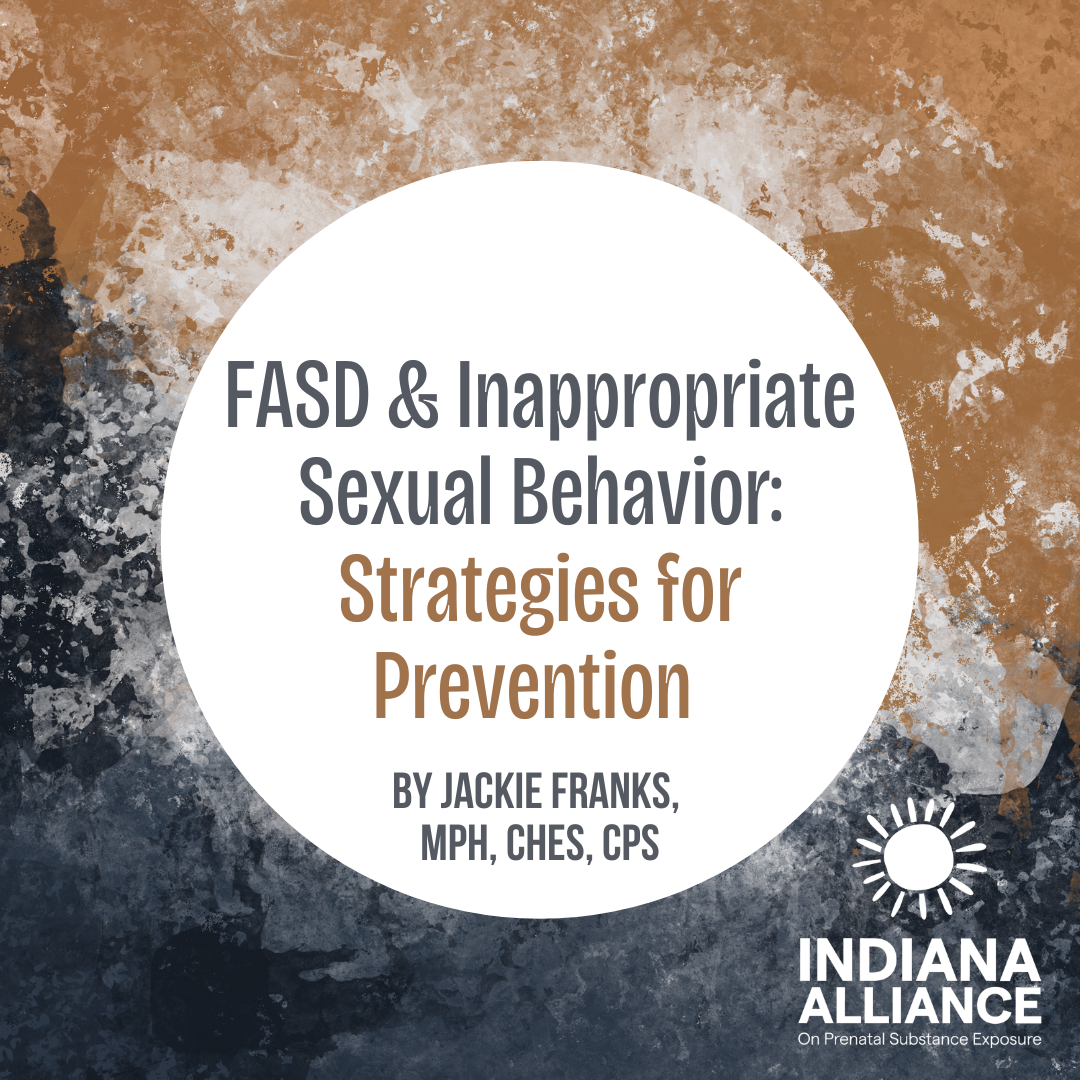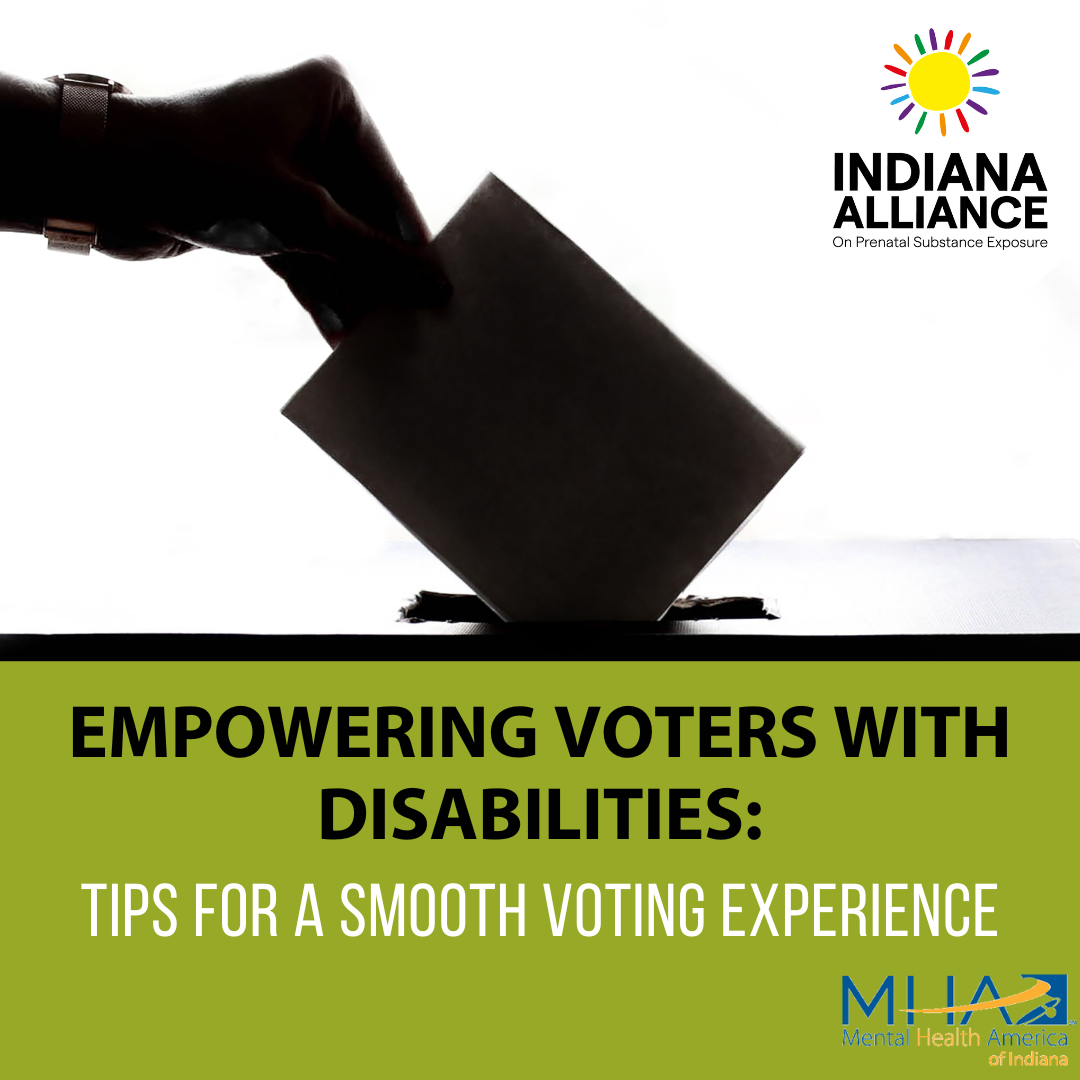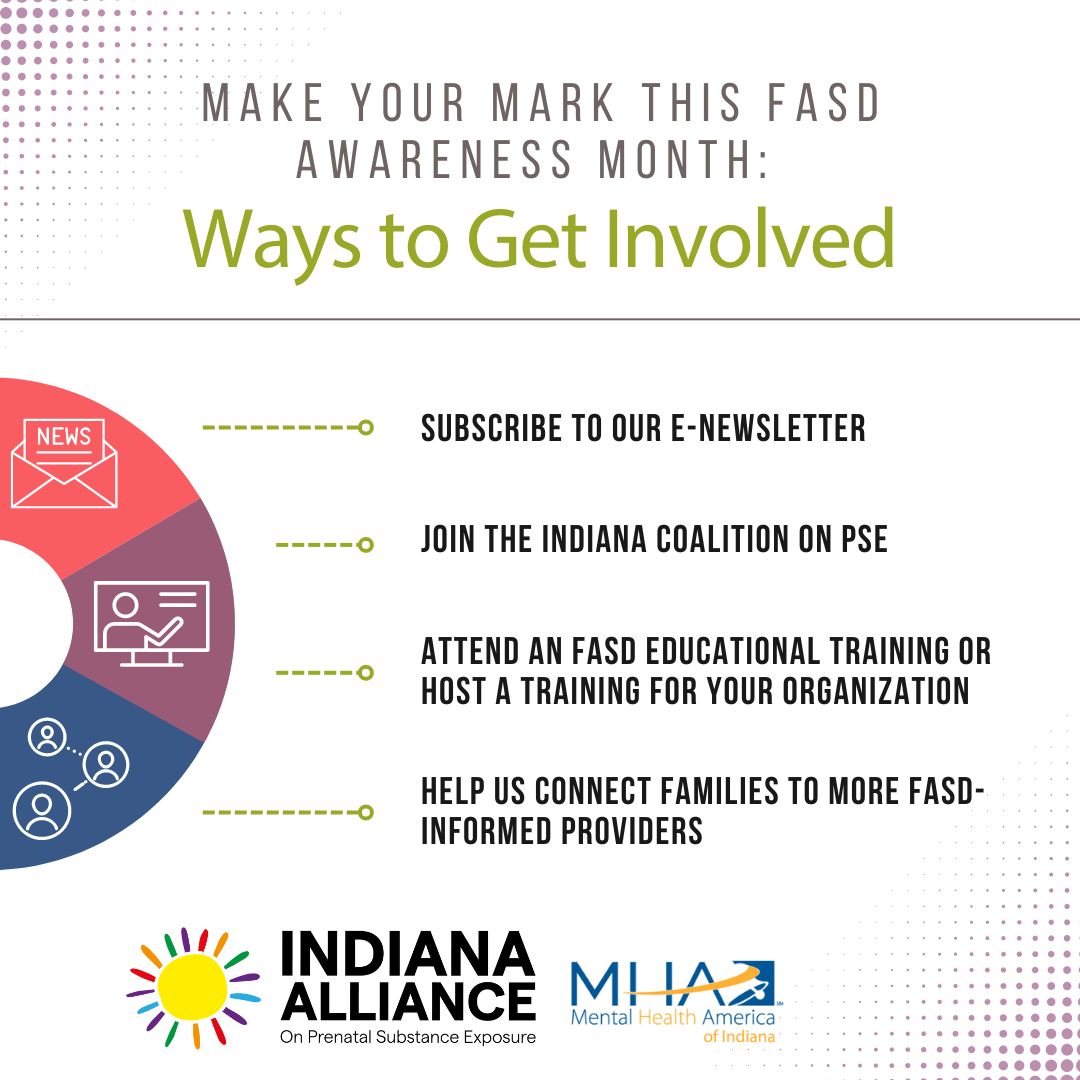
Research shows that individuals with a Fetal Alcohol Spectrum Disorder (FASD) are more likely to engage in or be the victim of sexually inappropriate behaviors. This is believed to be caused by areas of the brain influencing executive functioning, comprehension, adaptive behavior, social skills, linking consequences to actions, and impulsivity that are affected by prenatal alcohol exposure.
Below we will discuss these behaviors and provide prevention strategies for parents/caregivers and individuals with FASD.
Individuals with FASD as a Victim of Inappropriate Sexual Interactions
Research has shown that a large proportion of individuals with FASD have experienced some form of violence, and 55% of individuals with FASD report sexual violence. Children with disabilities experience abuse and neglect more often than other children, with rates of abuse being 3.4 times higher than the general population.
Prevention Strategies
- Sexual education that is specifically tailored to an individuals’ disability and needs. Parents/educators/providers should create healthy opportunities for FASD-affected individuals to learn about sexuality and have open discussions with direct language.
- Create protective environments. Improve safety and monitoring of individuals affected by FASD, foster open communication between parents/caregivers and children with clear definitions of what is/is not appropriate so the individual with FASD knows what types of sexual interactions are not okay.
- Support victims. Engage individuals who have been a victim of sexually inappropriate behavior in victim-centered services, such as behavioral health providers that specialize in sexual violence.
Individuals with FASD who Engage in Sexually Inappropriate Behavior
Researchers estimate that up to 52% of adults with an FASD display inappropriate sexual behavior, and rates appear to increase over the lifespan.
- Females are more likely than males to display promiscuity
- Males are more likely to have trouble with the law because of inappropriate sexual behaviors
- Many situations of inappropriate sexual behavior occur online
Prevention Strategies
- Sexual education that is specifically tailored to an individuals’ disability and needs. Parents/educators/providers should create healthy opportunities for FASD-affected individuals to learn about sexuality and have open discussions with direct language.
- Direct, literal communication. This type of communication is especially important for individuals with FASD who may experience trouble with abstract concepts or language. Be very clear regarding what types of sexual behaviors are appropriate and not appropriate, what consent is, etc.
- Enhance protective factors. Factors that can lessen the likelihood of an individual with an FASD engaging in victimization or perpetration include: families where caregivers work through conflicts, emotional health and connectedness, academic achievement, and empathy/concern for how one’s actions affect others.
- Monitor media usage. Exposure to sexually explicit media can enhance risk of sexually inappropriate behaviors. Monitor your child’s online activity to ensure they are not consumers of sexually inappropriate material or engaging in inappropriate conversations online.
References
CanFASD: Understanding FASD and sexual behaviour
Centers for Disease Control and Prevention: Risk and Protective Factors
Centers for Disease Control and Prevention: Secondary Conditions









